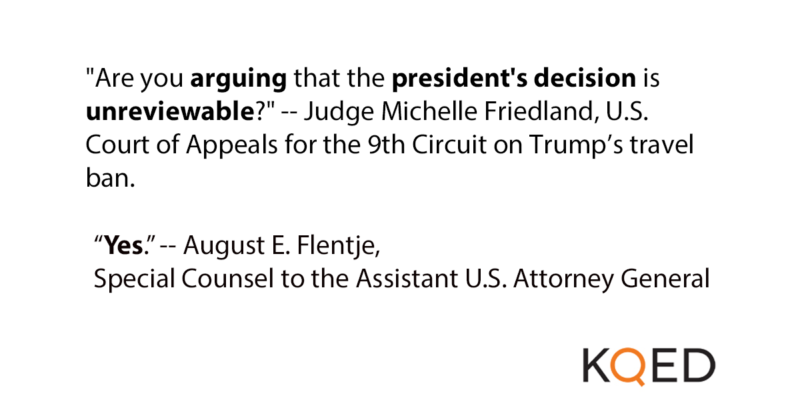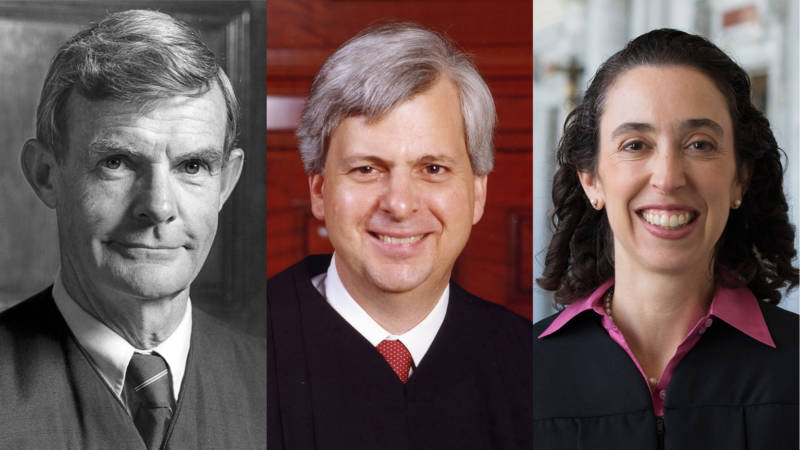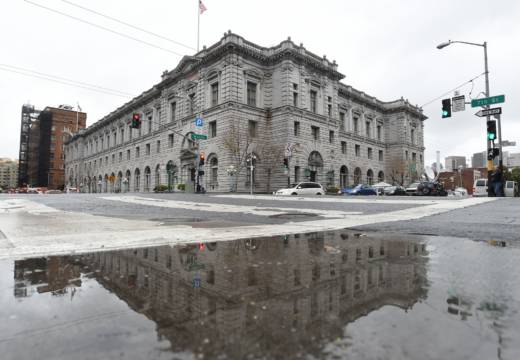"Well, the president determined that there was a real risk," said Special Counsel August Flentje, who was representing the U.S. government.
But he offered no evidence, and Judge William Canby noted that no one who has come into the U.S. from those seven countries has been accused of breaking the law.
At issue is whether U.S. District Judge James L. Robart's temporary restraining order, blocking key parts of Trump's Jan. 27 order, should be lifted.
Among the provisions that Robart blocked: enforcement of Trump's order blocking people from seven nations, as well as refugees from Syria and other war-torn countries, from entering the U.S.
Fundamental questions over the legality of Trump's order will be considered later.
On Tuesday, Clifton also questioned Washington State Solicitor General Noah Purcell about the state's allegation that the executive order amounted to religious discrimination. Clifton noted that the majority of Muslims live in other countries not impacted by the ban, but Purcell said he believes precedent is on the state's side.
"You honor, the case law from this court and the Supreme Court is clear -- we do not have to prove that this order harms only Muslims, or that it harms every Muslim," he said. "We just have to prove that it was motivated in part by a desire to harm Muslims."

The legal case began when the state of Washington, later joined by Minnesota, asked the lower court to block implementation of the order, saying it was "unleashing chaos" in airports, harming the state's economy and impeding companies like Amazon and Microsoft that depend on immigrants in their workforce.
In response, the Justice Department argued that the lower court judge had no authority to issue the injunction against the president's order.
"The Constitution vests the federal government with exclusive power over immigration for the nation as a whole," attorneys for the federal government told the 9th Circuit in its appeal.
Congress also didn't create any “procedural right for states to sue the federal government to challenge its decisions to deny the entry of (or revoke visas held by) third-party aliens," they added.
The judges seemed skeptical of that argument.
In its arguments, the Justice Department did leave the door open to a possible middle ground for the court to take, suggesting that the injunction could be limited to, for example, people previously vetted for entry to the U.S. who are temporarily abroad now or who would want to travel to the U.S. in the future.
That would allow parts of the president's order to go forward, such as the indefinite ban on entry by Syrian refugees who are not yet fully screened.
Loyola Law School Professor Jessica Levinson said the court may do just that -- side with Washington state, but end up narrowing the lower court’s ruling which applied to both immigrants and refugees.
"The federal government had a much more difficult time making its case, at the end they seemed to say 'OK, well just give us a different type of relief, just narrow the stay that’s in place on the ban,'" she said.
Circuit Judge Michelle Friedland, who presided over the hearing, says the court will issue a ruling as soon as possible. If the court rules against the administration, it will surely appeal.
[TrumpBanCourtDocs]



